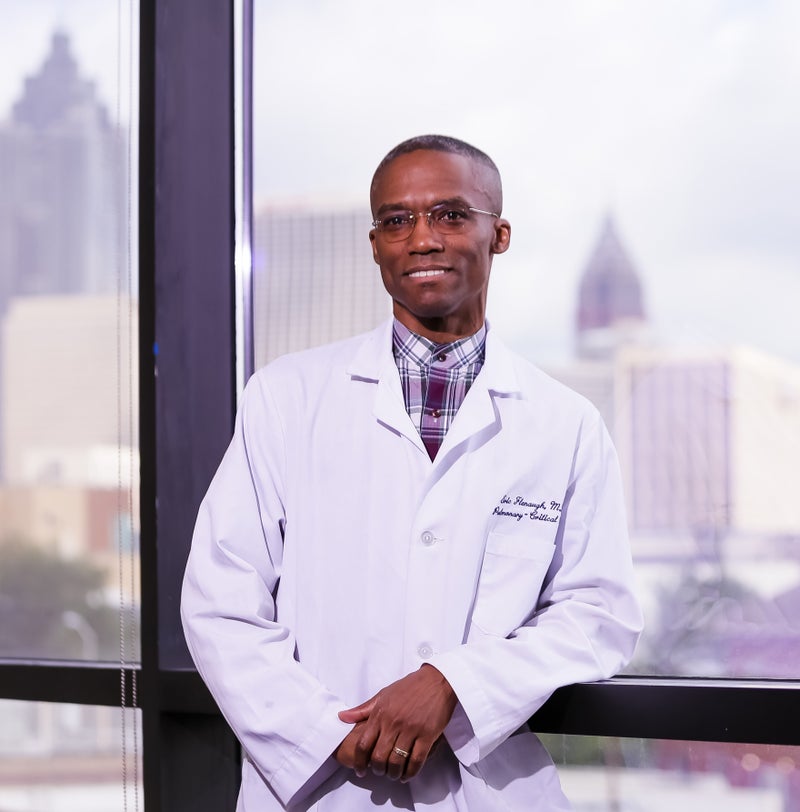South Georgia Healthcare Professionals Encourage Testing to Prevent Lung Cancer
According to the American Cancer Society, lung cancer is by far the leading cause of cancer death in the US, accounting for about 1 in 5 of all cancer deaths.
 Dr. Eric Flenaugh, MD, FCCP
Dr. Eric Flenaugh, MD, FCCP
Associate Professor and Vice Chair of the MSM Department of Medicine, Chief & Director
of Pulmonary and Critical Care & Interventional Pulmonary Medicine at Grady Hospital
By Fallon Howard, WALB
ALBANY, Georgia -- According to the American Cancer Society, lung cancer is by far the leading cause of cancer death in the US.
Lung cancer accounts for about 1 in 5 of all cancer deaths. That is why healthcare professionals hosted a roundtable on the effects of lung cancer and what resources are available to prevent it. Experts gave tips on what you can do to reduce your cancer risk.
Health experts say that several risk factors weigh into a diagnosis of lung cancer. That is why it’s important that even if you don’t smoke, you know how it can affect you.
“Lung cancer is one of the leading causes of cancer deaths nationwide. But we also know that lung health is very important because there is more to lung health than just cancer. You have heart disease you have pulmonary disease you know some of the things we don’t think about. And we know one of the leading causes of all types of lung health and dysfunction is smoking,” Ursula Mathis, director of oncology at Phoebe Cancer Center, said.
Loretta Mathis attended the event and is a retired United States postal worker. She says it’s the younger people who are smoking that caused a concern for her. Now she wants to spread the information to help others.
“Well, it’s always been an interesting topic about health, and I’m always concerned about young people. And I was really surprised of the statistics of young people who smoke today. And the different [rates] of lung cancer among Blacks and whites,” Mathis said.
Eric Flenaugh, M.D., FCCP, Associate Professor and Vice Chair of the Morehouse School of Medicine Department of Medicine and Chief and Director of Pulmonary and Critical Care & Interventional Pulmonary Medicine at Grady Hospital, says it’s the education on health that makes a difference in the outcome.
“Our goal is to increase health literacy because, without health literacy, you can’t change healthcare disparities. With Morehouse School of Medicine and our partnership with Grady Hospital, our goal is to decrease these disparities in these at-risk populations in Georgia,” Flenaugh said.
Officials say that the first step is asking for testing and listening to your body and its needs.
“The most revealing revelation was the learning of the adverse effects of hookah because it’s thought to be such a harmless recreational activity. And it’s used in our night clubs, in our homes, and the people think and I believe most people think it’s a harmless product,” Psychologist Dr. Alma G. Noble, an Albany resident, said.
Several factors weigh into the diagnosis of lung cancer but one factor that is overlooked is radon.
“So smoking for sure, your air quality, radon that’s something a lot of people don’t think about. You need exercise, food and nutrition, and your diet really matters,” Mathis said.
The common theme from healthcare professionals is the stigma behind fear and possible outcomes.
“We’ve actually promoted in and around Grady that we screen people. No blame, no shame. We understand that people may feel ashamed about having smoked, or they brought this on themselves or fear of getting bad news. But we can’t make an impact and change things if we can’t get past these fears,” Flenaugh said.
Overall, early detection, testing and awareness are the messages healthcare professionals hope people gain.

